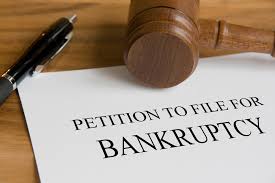The legal process wherein you cannot pay your debts, needing someone to take over your finances is called bankruptcy.
Applying for bankruptcy is a major milestone that needs legal advice or help from a service specialising in financial counselling. There are other options to take before considering bankruptcy.
Looking after your affairs is an appointed trustee once you’ve declared bankruptcy. Release from most of your debts happens when you are finally discharged from bankruptcy.
If you are unable to make good on your debts, an application from a creditor can make you bankrupt. You can also file for bankruptcy.
Seeking legal advice is important if someone threatens to seize your property or has filed a court case against you as a way to make you pay.
How you can become bankrupt
Becoming bankrupt takes two types, to include:
- You can declare bankruptcy by applying for a Debtor’s Petition with the AFSA or Australian Financial Security Authority
- If you owe more than $5,000 to a creditor and they petition to declare you bankrupt
An appointed trustee will control and manage all your financial affairs when you become bankrupt. The trustee can do the following for you to pay off your creditors:
What happens to you when you’re bankrupt?
- Scrutinise your financial affairs. The trustee can, in some cases, recover the property you transferred to another person before declaring bankruptcy
- Sell your unprotected assets
- Repossess any earned income that exceeds a certain limit
Bankruptcy has serious outcomes, to include:
- Restrict your ability to buy things on credit or borrow money
- The National Personal Insolvency Index will permanently record your bankruptcy
- Not being allowed to occupy the director position of a company
- Your credit report will list your bankruptcy for five years
- Unable you to hold certain public positions
- The bankruptcy trustee’s written permission is needed before you can be allowed to travel overseas
- Unprotected assets are likely to be sold
- Being prevented or curbed from practicing certain professions or trades
Debts still need to be paid during and after bankruptcy.
Assets that you are allowed to keep when you become bankrupt include:
- Most common household items
- Trade tools subject to a certain amount
- Car with equity less than the indexed amount
- Superannuation payments
- Payment from your life insurance policies
- Payments, assets or compensation received for personal injuries
- Assets entrusted to you belonging to someone else
- Sentimental items such as trophies or awards. However, you may only get to keep them if creditors agree.
When will you become free from bankruptcy?
Three years and a day is usually the period covered by bankruptcy. However, some situations such as a complaint from your trustee can extend the bankruptcy up to 8 years.
When do you need legal advice?
Legal advice may be needed if you:
- You can’t pay your debts and consider declaring bankruptcy as the last resort
- Your home is currently mortgaged and you are making every effort to pay off a loan
- You have a notice that states your assets including your home will be repossessed by the creditor
- You need someone to negotiate with the creditors
Declaring bankruptcy is not to be taken lightly. However, for some, it can mean a fresh start. If you think your situation right now needs a declaration of bankruptcy, contact a reputable company for bankruptcy advice in Brisbane.
